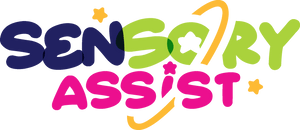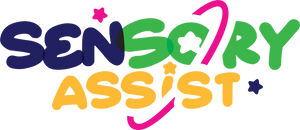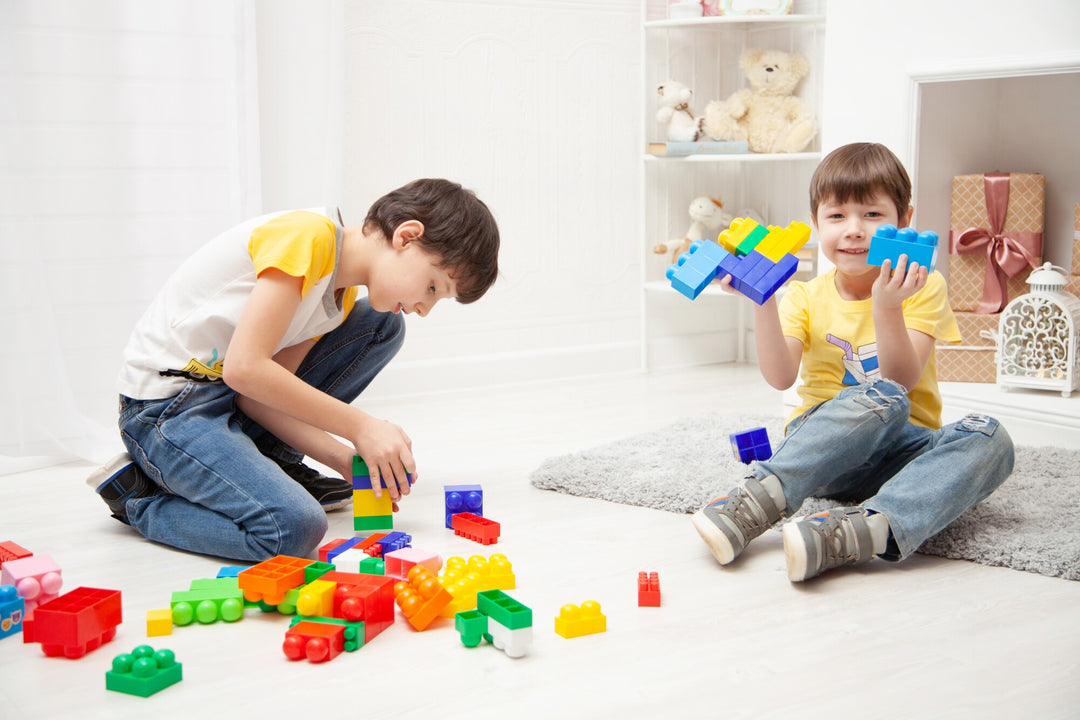Developmental Disabilities Awareness Month: Understanding, Supporting, and Promoting Inclusion

Every March, Developmental Disabilities Awareness Month is an opportunity to foster understanding, advocate for inclusivity, and highlight the importance of supporting individuals with developmental disabilities. At Sensory Assist, we are committed to empowering individuals with the tools they need to navigate daily life comfortably and confidently.
This month is about more than just awareness—it’s about action. By understanding what developmental disabilities are, recognising their challenges, and implementing strategies to support individuals, we can create a more inclusive and accessible world.
What is Developmental Disabilities Awareness Month?
Developmental Disabilities Awareness Month was established to shine a light on the experiences of individuals with developmental disabilities, reduce stigma, and promote meaningful inclusion in all aspects of life, from education and employment to social engagement and daily living.
The goal is to encourage communities, schools, businesses, and families to recognise the value of individuals with developmental disabilities and take steps to ensure they have the support and resources they need to thrive.
Why Does This Month Matter?
Despite increased awareness and advancements in support, many individuals with developmental disabilities still face barriers in daily life, including:
-
Limited access to education and employment opportunities
-
Social stigma and misunderstanding
-
Lack of inclusive public spaces and facilities
-
Challenges with communication and social interaction
Developmental Disabilities Awareness Month serves as a reminder that inclusion is a collective effort. By learning, advocating, and implementing supportive strategies, we can create environments where everyone has the opportunity to participate fully.
What Are Developmental Disabilities?
Developmental disabilities are a group of conditions that affect physical, cognitive, social, and emotional development. They usually manifest in early childhood and can impact an individual’s ability to perform everyday activities. These conditions vary in severity and may require different levels of support throughout life.
Some of the most common developmental disabilities include:
1. Autism Spectrum Disorder (ASD)
ASD is a neurodevelopmental condition that affects communication, behaviour, and social interaction. Individuals with autism may have difficulty understanding social cues, prefer structured routines, and experience sensory sensitivities.
2. Down Syndrome
Down Syndrome is a genetic condition caused by an extra chromosome 21. It affects cognitive development, muscle tone, and physical growth. Individuals with Down Syndrome often benefit from speech therapy, occupational therapy, and structured learning programs.
3. Cerebral Palsy
Cerebral Palsy is a group of disorders affecting movement, muscle tone, and coordination. It can impact mobility and motor skills, requiring assistive devices like wheelchairs, braces, or physiotherapy.
4. Intellectual Disabilities
Intellectual disabilities affect reasoning, problem-solving, and adaptive functioning. People with intellectual disabilities may need additional support in education, employment, and independent living.
5. Attention-Deficit/Hyperactivity Disorder (ADHD)
ADHD is characterised by difficulty with attention, impulsivity, and hyperactivity. It can impact academic performance, social interactions, and daily responsibilities. Support strategies often include structured routines, behavioural therapy, and assistive tools.
Understanding these conditions is the first step in promoting awareness and fostering a more inclusive society.
How to Support Individuals with Developmental Disabilities
Creating an inclusive environment for individuals with developmental disabilities involves both understanding and action. Here are some practical ways to provide support:
1. Foster Inclusive Communication
Many individuals with developmental disabilities experience communication challenges. Here’s how you can make interactions more accessible:
-
Use clear, simple language and avoid using complex phrases.
-
Be patient and allow extra time for responses.
-
Incorporate visual aids, such as pictures or written instructions, to support understanding.
-
Use alternative communication methods if needed, like sign language, picture boards, or speech-generating devices.
2. Create Sensory-Friendly Spaces
Many developmental disabilities involve sensory processing differences. To create a more comfortable environment:
-
Reduce bright lights, loud noises, and overwhelming stimuli.
-
Provide quiet areas where individuals can take breaks if they feel overwhelmed.
-
Offer sensory tools, like weighted blankets or fidget items, to help with self-regulation.
3. Encourage Structured Routines
Predictability can help individuals with developmental disabilities feel more comfortable. Ways to incorporate structure include:
-
Using visual schedules to outline daily activities.
-
Providing advance notice of any changes in routine.
-
Breaking tasks into small steps to make them more manageable.
4. Advocate for Accessibility and Inclusion
Inclusion means ensuring that individuals with developmental disabilities have equal opportunities. This includes:
-
Supporting inclusive education programs that accommodate different learning styles.
-
Encouraging workplaces to provide accommodations, such as flexible schedules or task modifications.
-
Promoting accessible community spaces with ramps, elevators, and adaptive technology.
5. Be a Supportive Friend or Family Member
Building strong, supportive relationships can make a big difference. Some ways to offer support include:
-
Listening and learning about the individual’s experiences and needs.
-
Encouraging social inclusion by inviting them to events or activities.
-
Respecting their unique ways of communicating and interacting.
Five Essential Tools for Supporting Individuals with Developmental Disabilities
At Sensory Assist, we offer a range of tools designed to improve the daily lives of individuals with developmental disabilities. Here are five essential items that can make a meaningful impact:
1. Sensory Tools for Self-Regulation
Sensory processing challenges can make everyday situations overwhelming. Items like:
-
Ear Defenders help reduce auditory overload.

-
Fidget toys provide a calming outlet for excess energy.
-
Weighted blankets offer deep pressure stimulation to improve relaxation and sleep.
2. Visual and Communication Aids
For individuals with communication difficulties, visual supports can make interactions easier:
-
Picture schedules help outline daily activities clearly.
-
Communication boards allow non-verbal individuals to express themselves.
-
Speech-generating devices assist those who need alternative communication methods.
3. Adaptive Learning and Play Tools
Learning should be engaging and accessible for all children:
-
Tactile learning kits encourage hands-on exploration.
-
Fine motor skill activities, like puzzles and lacing cards, strengthen coordination.
-
Adaptive writing tools help improve grip and control.
4. Calming and Anxiety-Reducing Aids
Many individuals with developmental disabilities experience anxiety. Helpful tools include:
-
Compression socks and vests, which provide gentle pressure for comfort.
-
Sensory swings, which create a soothing, rhythmic movement.
-
Chewable jewellery, designed to provide a safe outlet for oral sensory needs.
5. Mobility and Daily Living Supports

For individuals with physical challenges, these tools can improve independence:
-
Adaptive cutlery and grips to assist with eating.
-
Handwriting guides for improved writing accuracy.
-
Specialised seating and cushions for better posture and comfort.
Creating a More Inclusive Future
Developmental Disabilities Awareness Month is a reminder that inclusion, support, and advocacy should be ongoing efforts. By learning more, making accommodations, and providing the right tools, we can help individuals with developmental disabilities lead more independent, fulfilling lives.
At Sensory Assist, we believe that everyone deserves access to resources that enhance their daily experiences. This March, let’s work together to promote understanding, break down barriers, and create environments where everyone feels valued and supported.













